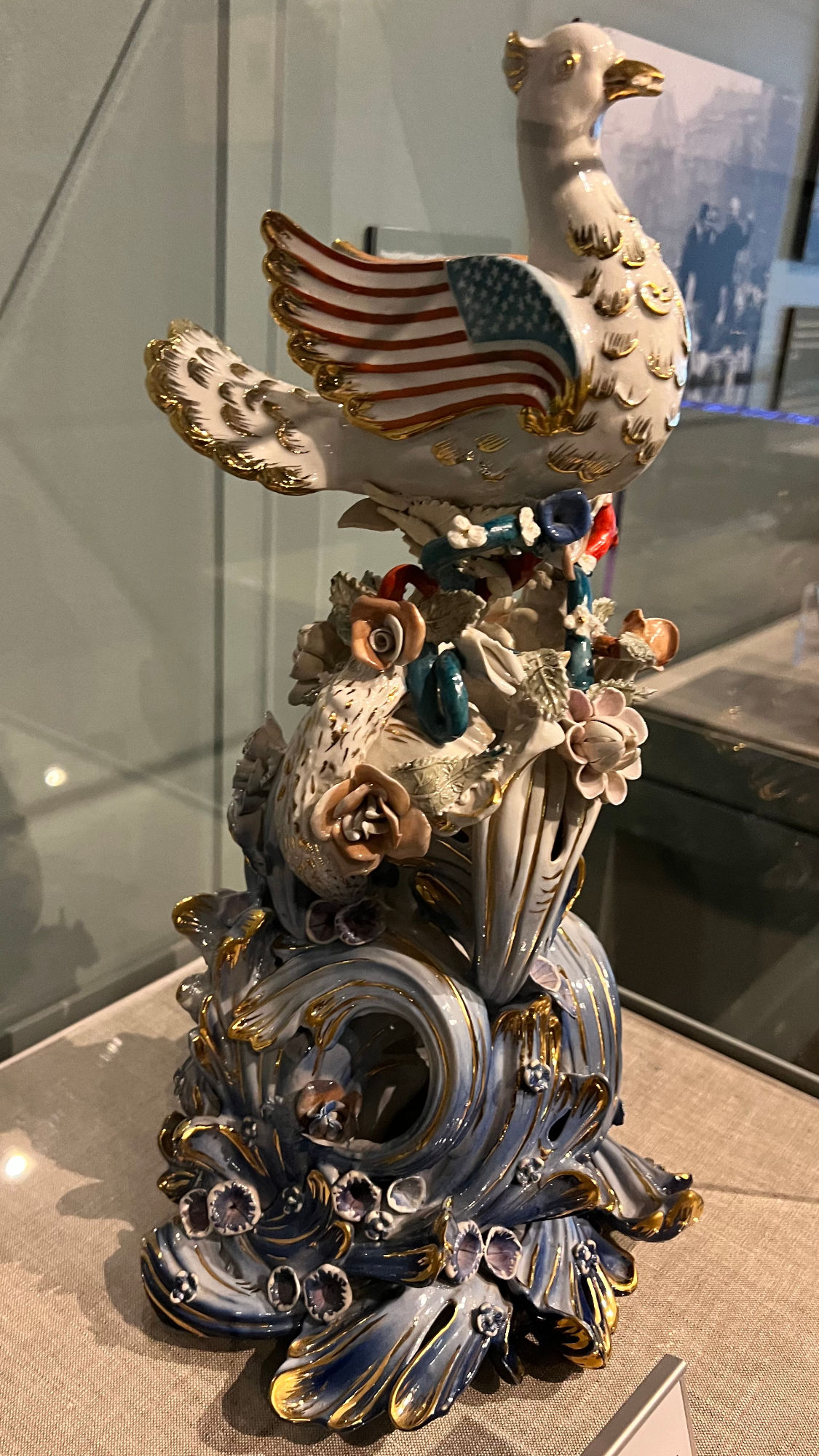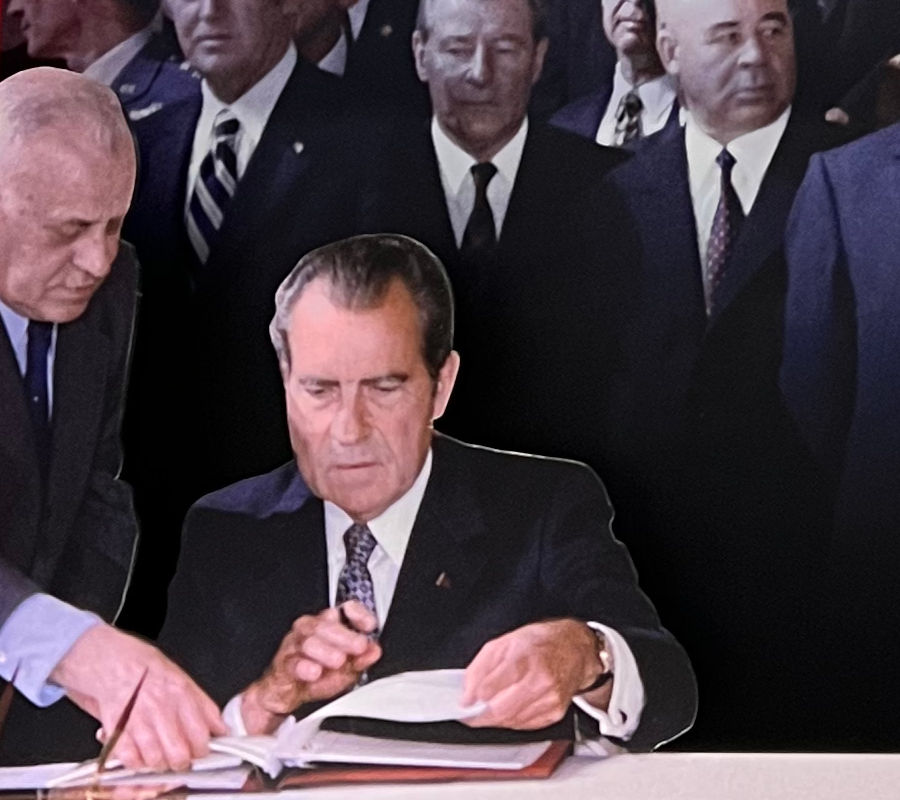Gorbachev knew that the country he was appointed to lead faced significant economic and political problems.
The Soviet government's decades-long control of the entire economy led to massive inefficiencies, a critical lack of innovation, and a reduced standard of living for most of the Soviet people.
Its restrictions on free speech, free elections, and a free press were increasingly untenable as modern media increasingly exposed the people of the Soviet Union to how people lived in free nations outside the Soviet orbit.
To address these problems and strengthen the Soviet Union, Gorbachev implemented two major reform measures designed to boost the economy and reduce restrictions on freedom of speech and the press.
- Perestroika (restructuring) was intended to decentralize the Soviet economy, with the goal of achieving greater productivity, efficiency, and innovation in the Soviet economy.
- Glasnost (openness) was intended to reduce the absolute state control of people's freedom of speech and the press.
Gorbachev never intended to end the Soviet Union. He sought to strengthen it. But as his reforms took hold, it became increasingly difficult to maintain any degree of control.
- In March, mass demonstrations for democracy began in Hungary. Two months later, 150 miles of barbed wire at the Austrian border, meant to prevent Hungarians from leaving the country, was dismantled.
- In June, Poland held its first free elections. Anti-communist candidates defeated the communist candidates in every contested election.
- In August, two million people in Estonia, Latvia, and Lithuania formed a 370-mile human chain across the three Soviet republics, demanding freedom from the U.S.S.R.
- In mid-October, Hungary passed laws permitting the direct elections of the president and allowed competitive elections for parliament.
- On October 31, half a million people across East Germany were demonstrating for democracy. The East German president flew to Moscow for talks.
- On November 4, half a million people gathered in East Berlin demanding freedom. As the crowds swelled, the East German government made it easier for East Berliners to travel to the West.
- On November 9, the East German government removed all travel restrictions on its people. Tens of thousands began to rush to the Berlin Wall and started to chip at it with hammers and pickaxes. Border guards were overwhelmed and made no effort to stop them.

- German citizens wield pickaxes, hammers, and chisels to the Berlin Wall in late 1989, destroying the barrier that divided their city since 1961.




Moscow's Pushkin Square was the site of an American invasion. Not a military invasion with big guns, but a fast-food invasion with Big Macs, as McDonald's opened its first restaurant in the Soviet Union on January 31, 1990.
In the bitter cold of a Russian winter, McDonald's succeeded where Napoleon had not - taking over Moscow, as more than 5,000 Muscovites lined up to be among the first to sample Ronald McDonald's fare. Before the doors were closed on that first day, more than 30,000 people had been served.
Not long after, Pizza Hut opened two stores in Moscow. They were the largest Pizza Hut restaurants in the world. Their popularity grew quickly. Within a short time, they were making 5,000 pizzas a day, serving 80,000 customers a month.
Frederick the Great is credited with saying, "An Army marches on its stomach." In Moscow in 1990, perhaps it can be said that the spread of freedom marched in on the full stomachs of the Soviet citizens who were enjoying their first taste of food from such free enterprise institutions as McDonald's and Pizza Hut.

- Huge crowds lined up outside Moscow's first McDonald's on Pushkin Square when it opened on January 31, 1990

- Porcelain dove figurine with a Soviet and American flag on each wing.


In its review of the book, the New York Times wrote:
To be sure, not all the countries of the world have yet achieved liberal democracy. But Mr. Fukuyama argues that they are all bound to get there, sooner or later, since human nature requires it.
As you look at the state of the world today, do you believe that western liberal democracy is on its way to becoming the "final form of human government" across the globe in your lifetime?
What we are witnessing is not just the end of the Cold War, or a passing of a particular period of postwar history, but the end of history as such: that is, the end point of mankind's ideological evolution and the universalisation of western liberal democracy as the final form of human government.-Francis Fukuyama, The End of History and the Last Man
Once the nuclear taboo that has held since 1945 is broken, it's broken.-Peggy Noonan, Wall Street Journal Columnist, April 28, 2022










